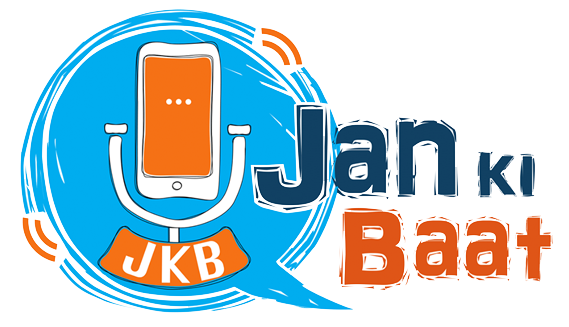Users Survey Report on “Online Fantasy Sports: Enhancing Sports Equity”
Executive Summary
The emergence and growth in the popularity of the Online Fantasy Sports (OFS) industry in India has been drastically enhanced due to several key factors like rapid improvement in the digital infrastructure and payments, paving the path for alternative means for sports enthusiasts to engage with sports.
With a wide user base of 90 million as of 2019, and FDI projections worth INR 10,000 crores for India, Online Fantasy Sports industry offers a plethora of opportunities that can be utilized. Responding to the growing interest in Online Fantasy Sports, the NITI Aayog published its draft of the Guiding Principles for the Uniform National-Level Regulation of Online Fantasy Sports Platforms in India (hereafter referred to as the Guidelines). In this context, Jan Ki Baat has conducted a user survey titled “Online Fantasy Sports: Enhancing Sports Equity”.
The survey was disseminated to over 3000 fantasy sports users through various Online Fantasy Sports Platforms. This report looks to present the accurate picture of the Online Fantasy Sports industry and its consequent regulation in terms of potential to encourage investments, industrial growth, employment, and talent generation in India’s sports ecosystem. It captures 5 key themes which look to explore the potential of the Online Fantasy Sports industry, need and benefits of self-regulation model and the overall impact of the NITI Aayog Guidelines in promoting access to sports, investments and growth of the economy.
Key Findings
This section details the key findings of the survey, based on the five thematic areas explored:
Question 1: Are the NITI Aayog Guidelines successful in clearly distinguishing Online Fantasy Sports from online games?
Rationale: The NITI Aayog Guidelines aim to capture features of Online Fantasy Sports as an engagement platform, and also to maintain their distinction from online games. This question seeks to assess how clearly this distinction has been articulated to the users.
Highlights: 64.61% of the respondents strongly believe that the Guidelines were successful in doing so, while 21% of the respondents felt the distinction was made adequately. This is a clear indication that not only were the guidelines successful in detailing the crucial distinction between digital gaming platforms and Online Fantasy Sports, but users are starting to understand how OFS is a digital sports engagement platform.
Question 2: Will regulation of Online Fantasy Sports help bring in more investment into the Indian Sports Industry?
Rationale: Given that Online Fantasy Sports has displayed phenomenal growth in terms of revenue and user base, it stands to reason that, under a uniform regulatory framework, the industry will generate greater growth for the overall sports ecosystem by attracting higher foreign investment.
Highlights: A whopping 75% were in strong agreement that regulatory clarity will lead to generation of higher revenue and investments, thereby further advancing the growth of India’s overall sports industry.
Question 3: Will a uniform regulatory framework for Online Fantasy Sports help boost economic growth and generate more jobs?
Rationale: The ability of an industry to generate employment is a key indicator of its viability as an economic driver. This question thus aims to understand user perception on how uniform regulation is likely to capture employment generation potential in the Online Fantasy Sports.
Highlights: Over 67% of the respondents were in strong agreement on the influence of regulation in generating employment. Additionally, 20% of the respondents acknowledged the possibility of regulation in enhancing employment potential. This also falls in line with the understanding at large in India in the potential for various digital platforms to be leveraged towards economic growth and employment.
Question 4: Will NITI Aayog’s guiding principles for Fantasy Sports promote newly emerging sectors such as sports content aggregation, sports tourism, merchandising and online coaching?
Rationale: Successful engagement platforms in the digital space come with the strong promise of being able to promote ancillary support professions and industries. This theme aims to understand whether users believed that this was a possibility with regards to Online Fantasy Sports.
Highlights: A stunning majority of over 87% of the survey respondents believe that the success of the Online Fantasy Sports market, and its effective regulation, will most likely lead to promotion of ancillary industries in the larger digital sports engagement framework.
Question 5: The presence of Online Fantasy Sports in spaces such as kabaddi, hockey etc., is likely to encourage more talent in the fields
Rationale: For the longest time, sports has been synonymous with cricket in India. While Online Fantasy Sports platforms have engagements on real life cricket tournaments, they have not confined themselves to the sport. Online Fantasy Sports providers allow user engagement on various other ongoing tournaments in hockey, volleyball, football, basketball, baseball, handball, rugby, and kabaddi. This question seeks to understand how far the users see this having a bearing on the overall popularity of the sports in terms of both engagement and in encouraging talent.
Highlights: 87% of the respondents believe that engagement via Online Fantasy Sports has a beneficial impact on driving popularity for the sports, such as hockey, kabaddi, volleyball etc., and thus in encouraging local talent for the same.
Recommendations
This survey has attempted to associate the impact of regulating a widely popular and new industry such as Online Fantasy Sports in promoting sports equity. The questions thus asked have been designed to capture equity from the perspectives of increased investment, potential for employment, further lateral industrial growth to equity in distribution of talent across sports. To that end, it can be concluded that the majority of the respondents felt favorably on all accounts with regards to regulating the industry.
Jan Ki Baat believes that the guidelines put forth by the NITI Aayog are a crucial and positive step in the right direction towards capturing the potential of Online Fantasy Sports to promote sports equity in India. Therefore, it is essential to keep the momentum intact on regulation and uniform National-level formalization of the industry.
Detailed below are key recommendations based on the survey:
Regulating the sector is key to formalizing and ensuring overall growth in the industry.
Carving out a separate regulatory space for online fantasy sports will enable it to achieve its true potential with regards to attracting revenue, promoting industries and the local talent.
Incorporating the guidelines into a central level framework would iron out discrepancies among States on perception of online fantasy sports and allow them to leverage the platform for growth.
Flexibility in regulation is a key to any new industry, particularly in the tech space. Hence,self regulatory models must be continuously adopted
Pic courtesy:- imagine sports

